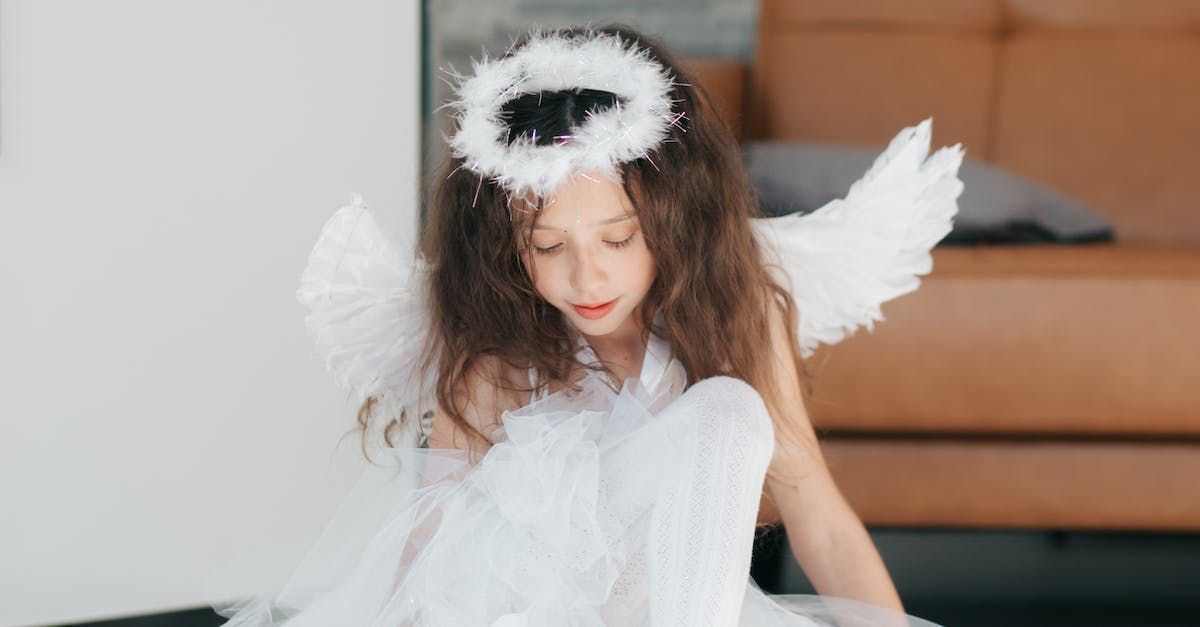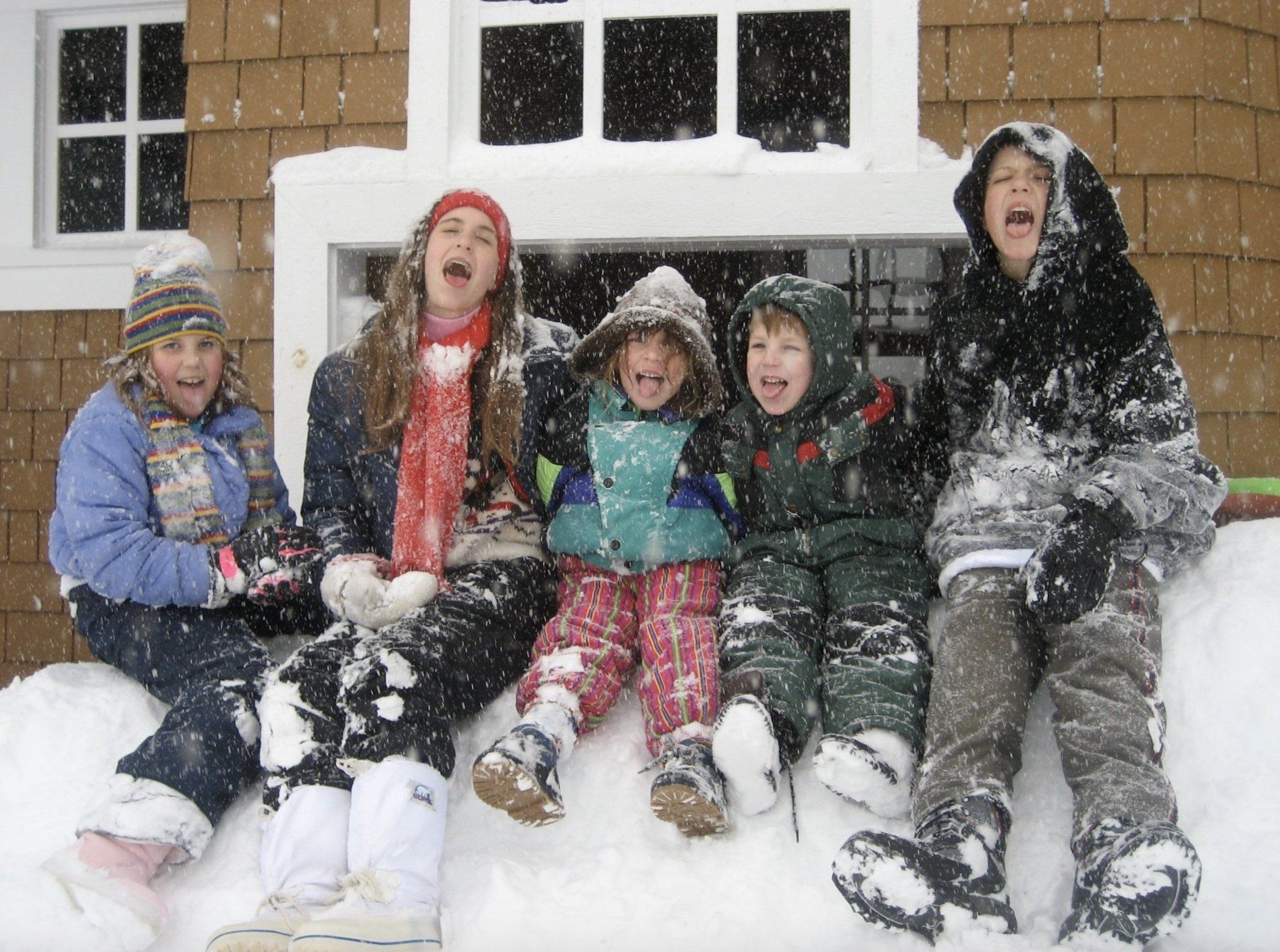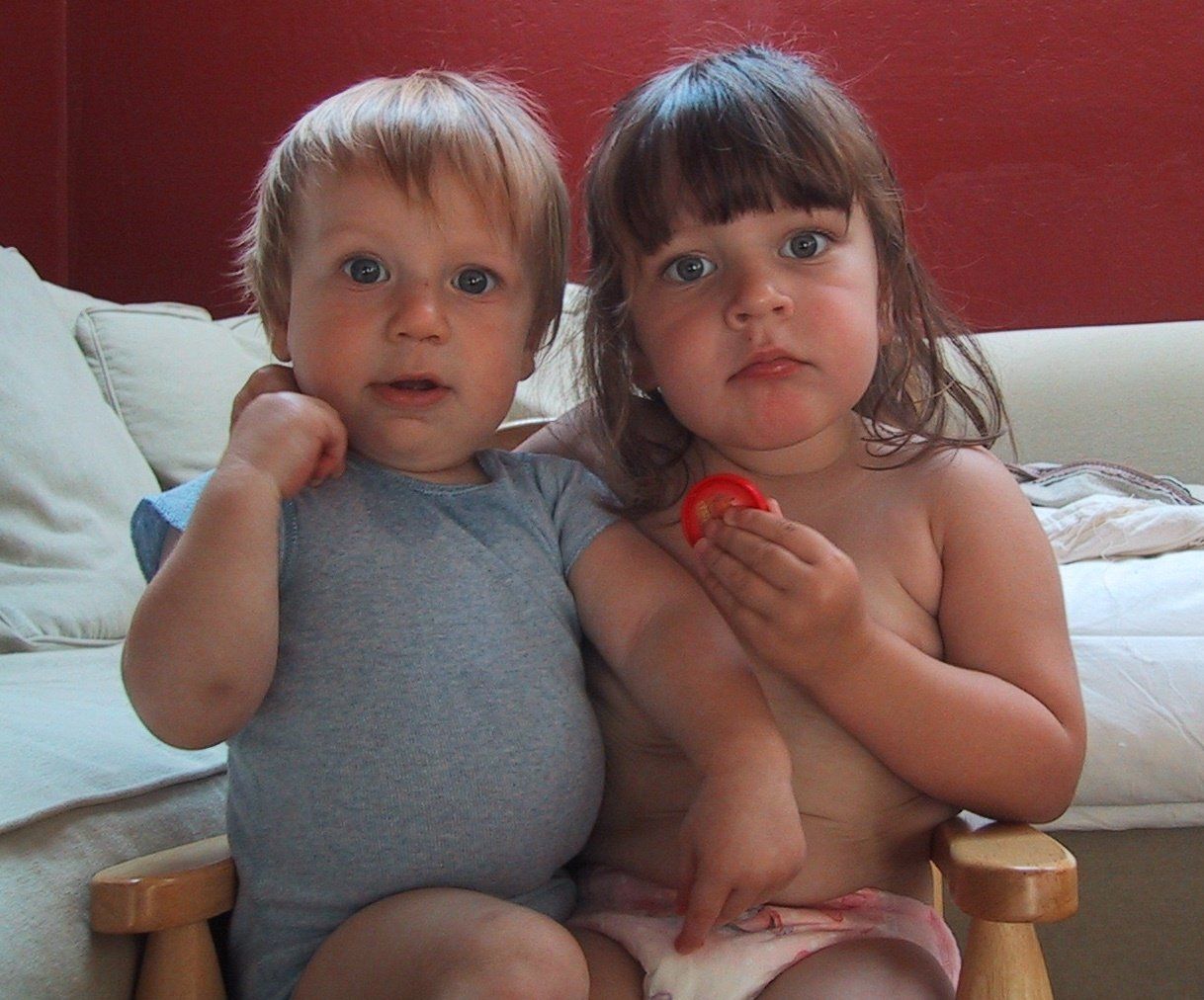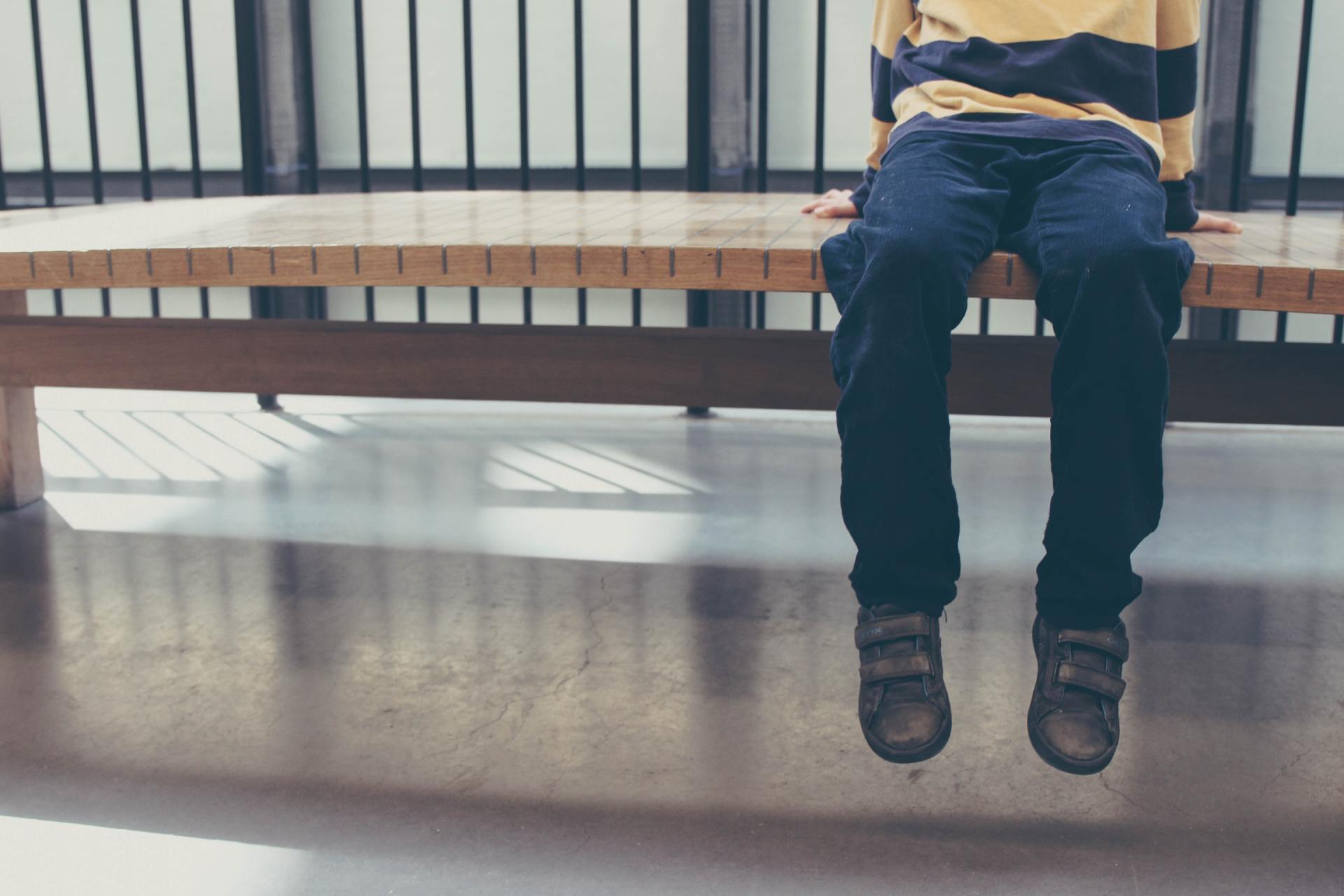Three Steps to Creating Deep Connections with Your Teen
How to Raise Kids Who Can Launch Successfully Without Losing Your Mind
When my daughter was three years old, I took her to preschool for the very first time. We had spent nearly 24/7 together for the first three years of her life, and now suddenly she had her own secret life for about two and a half hours a day, five days a week. She wasn’t talking much yet (she was in a special preschool for speech delays), but even if she had been, it’s unlikely I would have gotten much information.
Even more disconcerting was when, during that first year of preschool, she elected to take the bus. A little tiny bus equipped with car seats would pull up to my driveway. I would help my daughter up the big steps, with her little pink backpack, to the car seat that awaited her. I’d buckle her in, step off the bus, and wave goodbye.
TO MY THREE YEAR-OLD WHO
WAS NOW ON A BUS.
And then I would wait anxiously for the next few hours until Alice, the grandma-bus-driver with the “curly” face (as my daughter called her wrinkles) would once again reappear in my driveway.
What on earth was going on for my child when I wasn’t around? What stories could she have told me if she was much of a talker? Was she happy? Was she scared? Excited? Bored?
Little did I know that I was getting the first taste of what would inevitably pop up in the teen years: My kids would have so many experiences, so many thoughts and emotions, that I wouldn’t be privy to.
I hear and read so much about the pain parents experience as their children separate from them in the teen years. It can feel like a personal rejection. We all know by now that separation is inevitable and actually desirable. After all, we want our kids to launch and be self-sufficient and capable of managing, eventually, all aspects of their inner and outer lives.
What if I told you, though, that creating and maintaining a deep and strong connection with your kids is actually what enables them to launch successfully? To weather the storms that life promises to bring? To ride life’s roller coaster of love, despair, victory, and defeat?
Perhaps you’re thinking, well duh. Also: How am I supposed to do that when I have teen who shuts me out? Who ignores me or insults me or wants nothing to do with me?
Or you might be thinking: My kid follows the rules. She’s taking three AP classes, plays lacrosse, and volunteers at a food bank. So clearly she’s acing life! We’re good!
Whichever one sounds most like your teen (or perhaps you’re somewhere in between), the most important parenting strategy you can learn is how to communicate in a way that builds deep connections with your child.
Sadly, according to the data, kids in Marin are not doing okay. According to a 2021 report by Marin County Health & Human Services, our beautiful county has the one of the highest suicide rates in the Bay Area. Teens make up 10% of the Marin population but account for 44% of suicide-related ER visits and 36% of suicide-related hospitalizations. White males are the most at risk. But they are not alone. In 2013, when my daughter was in eighth grade, I personally was aware of four girls her age who had attempted suicide. Fortunately, none of them was successful.
No matter where your teen is falling on the spectrum of teen well-being–whether they’re fully participating in life or shrinking away from it, whether they’re having great academic success or having monumental struggles–it’s not too early–or too late–to begin the work of making those deep connections.
As you know there is no one-size-fits-all manual. Each family is unique. But there are communication skills every parent can learn that foster the kind of mutual trust and respect that give our kids emotional safety and resilience.
Here are three things you can begin doing right now:
Look beyond and behind behavior to reframe it as
information about your teen.
When my son was 16 and begin to struggle, I freaked the hell out. I didn't understand many of his choices. And I was scared. What I wanted so desperately was for him to change his behavior. I wanted him to change because then, it seemed, he would be OK. And then I would be OK.
I even sought the advice of both an adolescent psychiatrist and an adolescent psychologist. Their advice was equally focused on the behavior. It was so much about the
what. Let’s all figure out how to get him to stop doing what he was doing!
And so that’s what I did. With a template provided by his psychologist, I created a behavior plan, which included specific behaviors and the rewards and punishments that would result. It was pages long. This document and what it represented reflected a parenting paradigm most of us probably learned: Create rules and stick to them. Make it very clear what the expectations are. And then make sure consequences ensue.
This approach sent my son into a tailspin, and for the first time, he eventually told me, he had a fleeting thought of driving into a pole.
Instead of fostering the connection he so desperately needed from me, this hardline old-style parenting model pushed him further into his pain and farther from his mom.
The problem was this plan, this very expensive and professional advice, did nothing to get at the
why. I did want to know why, but I was so afraid of his behavior that the
why took a backseat to the
what.
So what did I learn during this very difficult time? This difficult time when my son was adrift and our relationship was suffering?
The single most important thing at that time was understanding what was going on inside my kid. The behaviors were
symptoms of something much deeper. They were clues for me to explore so I can could actually
help my child, rather than putting a bandaid on the problem so that
I could feel better.
When I made the shift into the peaceful parenting paradigm I now teach, which prioritizes the parent-child relationship over behavior, things began to shift. My fear didn’t go away exactly, but it softened into compassion, empathy and curiosity. I began to perceive his behavior as manifestations of anxiety and depression, which allowed me much more effectively support my child.
Do more listening than talking.
I don’t know about you, but I love to give advice. Stories of my childhood and all of the things I learned in my life could help my teen
so much. After all, I’m so much older and wiser! If only my kid would listen to me, they would see things more clearly and make better decisions. Right?
No, actually not at all. In fact, whatever
I have to say to my kid most of the time is so much less important than what
my kid
has to say to me.
You might be thinking: Then what is parenting for? Aren’t we supposed to give them boundaries to keep them safe? Aren’t we supposed to pass down all the wisdom we learned so we can save our kids from the same mistakes we made?
Yes to boundaries when they are guided by family values (great topic for another blog post!). Absolutely.
But what if I said that our role as parents to older kids is to ask them questions? Be curious. Get to know our kids. Ask them what they think. Or what they want. Or what’s going on with them when they’re acting in a way we don’t necessarily like or understand. But also, just as importantly, when they seem as if they have it all together.
That’s how you can get to first thing: reframing behaviors as information.
Back to the story of my son. Instead of shoving a behavior contract in his face, I wish I’d said to him: “I notice that last week you missed school three times. I understand you’re really struggling with something. Being a teenager is so hard. I don’t know what’s going on for you, and I want you know I’m always here for you when you want to talk.”
I’m not suggesting that parents don’t address worrisome behavior, but rather that we address it in the context of the
why. It’s only when you get at the
why that you can problem-solve the
what.
It’s entirely possible my son wouldn’t have been able to identify or articulate what he was struggling with, but just letting him know I saw him as a person who needed help, rather than a person who needed correcting, would have helped build the kind of trust that allows a kid to reach out for that help when they need it.
For example, let’s say often when your daughter gets in the car at pick up time, she’s grouchy. She sits down, slams the door, and looks straight ahead. You say hello. She says nothing and glares out the window.
Maybe she criticizes your driving, or she’s angry because you were late. In any case, this just isn't an acceptable way for her to greet you because, after all, you left a meeting early to pick her up, and she’s being pretty rude and ungrateful.
If you’re a normal human person, you feel some tightness in your chest. You feel the blood rush to your head. You’re angry. You do so much for that kid of yours, and this is the thanks you get!
Your first instinct might be to say, “Don’t talk to me like that.” Or “Whoa, you’re in a bad mood.” And then maybe you distance yourself. Or maybe you don’t say anything at all. You’re tired, you’re beaten down, you’re just not having it.
After all, perhaps
you had a rough day. Perhaps you spent all day doing something on behalf of your child, and now they’re treating you with disrespect or even disdain!
While all of that may be true, what you are missing in that moment is empathy for your kid, for the secret life she lives at school, for whatever teen experiences she’s having that are stressful, confusing, upsetting, perhaps even depressing, scary, and traumatic.
Here’s your big chance to put your new “talk less, listen more” approach into place. Like this: “Hey, Kiddo. I love you so much. I don’t know what’s going on for you right now, but I’m always here if you want to talk.”
You bring a softness and openness, rather than meeting your child with anger and frustration.
Imagine the very different outcome! Your child may or may not open up in that moment, but what you’re doing is playing the long game. You’re showing your child you can give them what they need in their most difficult moments, and, when you’re at your
very best, in
your difficult moments as well.
How can you do this? How can you show up for your child when he’s being rude, insulting, dismissive?
Regulate our own emotions.
That’s the first order of business!
Regulating our own emotions is what enables us to do the first two things I mentioned - reframing our kids’ behaviors and doing an awful lot of listening. If we practice regulating ourselves when big emotions are bubbling up inside of us, we are so much better able to show up as the moms and dads we want to be.
When my son was going through that very hard time, he was alone for a weekend at his dad’s house. I was
very
unhappy about that. I was very unhappy about a lot of things, including the fact that my struggling son no longer lived with me and seemed to have no parenting at all.
So when I discovered he was having a party, I completely lost it. I’m not much of a yeller, and I’m not sure I actually yelled, but I was
so angry. Furious. I threatened to call the police to make the kids leave. I forced myself into his apartment to search for drugs and alcohol, all the while absolutely seething. I’m not sure I can think of a time in my life when I was angrier.
Months later, when I was going through my coaching program, I had an epiphany. Sure, I would have–and quite frankly, should have–have been upset about the party.
But I had realized something important: The overwhelming emotions pouring out of me were actually my sadness about his no longer living with me when I thought he really needed me most, and my fear about where this was all leading. My reaction was about so much more than the party. But I was so caught up in my emotions that I couldn’t see clearly.
Here’s what I wish I’d had the capacity to do:
Calm down my body and mind.
Respond instead of react so I could more effectively communicate and handle the situation.
Instead, I was so out of my mind, I’m sure my son couldn’t possibly receive anything I had to say in that moment.
So if you notice you have strong reactions to things like undone homework, broken curfews, rudeness and even avoidance, I have good news for you: Regulating yourself is the single best thing you can do. It’s the first step toward creating a relationship with your teen that will carry you through those challenging years–and that will last a lifetime. It will allow you to better communicate in a way that your child can receive, understand, and respond. And you’re modeling something pretty magnificent for your child’s growing brain.
It’s also something
you can learn to do. It won’t be simple. There is a lot to unpack about our own emotions as we embark on this journey to become the kind of parents we want to be.
But I promise you, it’s possible.
All of these things are possible. If I can learn to regulate my emotions, practice more listening than talking, and reframe how I look at my kid’s behavior, so can you.
You can absolutely begin to build, at this very moment, a stronger, deeper connection with your child. No matter where you are in your parenting journey, it’s not too early or too late to start becoming the parent you want to be.










